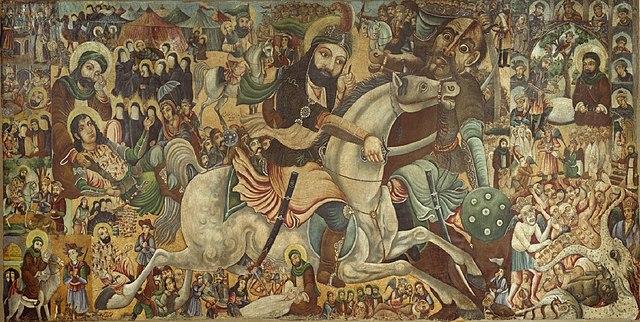The day of Ashura is on the 10th of Muharram — the first month of the Islamic calendar. The day holds great religious and historical significance for Muslims.
HISTORY OF ASHURA
Ashura marks the tragic ‘Battle of Karbala’ incident in which the 7th-century revolutionary leader Husayn ibn Ali was killed. Millions of Muslims across the world observe the day of Ashura to remember Husayn’s sacrifice and dignified stance on social justice.
The story dates back to events that took place 13 centuries ago, following the death of Prophet Muhammad in 632 A.D. The leader and caliph of the Muslim community were to be decided, over which a dispute started. Abu Bakr, the Prophet’s close companion, was backed by most Muslims to inherit the leadership and become the first caliph. Others advocated for the Prophet’s son-in-law and cousin, Ali, as the rightful successor. Those who supported this claim led to the creation of the Shia sect of Muslims. Whether or not he was selected as caliph, Ali is considered by Shia Muslims as their first imam, a divinely appointed leader. Sons and descendants of Ali would carry the title. Shias started following their Imam as the true leader, regardless of the title of caliph.
When Ali’s second son Husayn became the third imam, the dispute between the imam and the caliph intensified. From 661 to 750 A.D., the Umayyad dynasty ruled the Islamic kingdom. One of the caliphs named Yazīd ordered Husayn to pledge allegiance to him and his caliphate in the holy month of Muharram in 680 A.D. Husayn rejected the order, as he believed Yazīd to be an illegitimate and unjust ruler.
His refusal resulted in a massive battle in the desert of Karbala (modern-day Iraq) between Husayn’s small tribe and Yazīd’s vast army, which lasted 10 days. Husayn’s tribe included his sisters, half-brother, wives, children, and closest companions.
Husayn and his followers were surrounded and stopped by Umayyad soldiers at Karbala. On the day of Ashura, Husayn and his men made their final prayers at dawn, anticipating their fate. Despite knowing they would die that day, the men stayed loyal to Husayn and his cause. The battle of Karbala began at noon. Knowing that their sacrifice would ignite the revolution, Husayn’s men fought Yazīd’s army bravely. One after another, the companions were killed. Only Husayn remained standing alone.
Food and water supplies were cut off for Husayn and his companions by the Umayyad army. Heavily wounded and thirsty, Husayn did not give up. As the evening drew near, the army of Yazīd attacked Husayn from all sides, brutally killing him.

